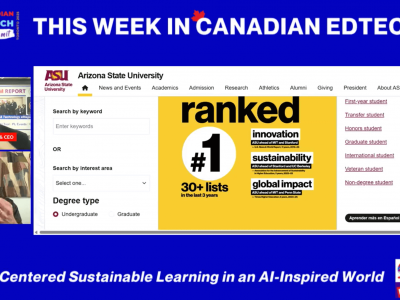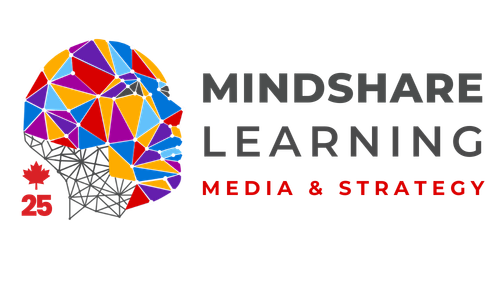I’m going to come right out and state it. There’s no revolution in education at the moment. No, not 21st Century Learning – or whatever you want to term this focus – or in the use of technology, or even in the grand scale of the working out of Constructivism in it’s various incarnations. Revolution is radical and it permeates all facets of it’s relative context whereas an evolution is simply a change which can be measured or observed over a period of time. There are reasons for this; some of these reasons are obvious – I think – and some are not. Let me categorize – broadly – why I think that the 21st Century focus is simply evolutionary.
What do 21st Century Skills really mean anyway?
It takes time to initiate a movement that becomes revolutionary, and to be revolutionary there must be an accepted understanding right across the spectrum of what needs to be revolutionized. Educators are reluctant to move quickly in any direction, regardless of the justification or the crisis. Radically changing their approach, or adopting some new form of teaching and learning because that’s the ‘new idea’ or the ‘talk of the day’ is simply not enough. And what is meant by 21st Century Skills anyway? Ontario just released a document on 21st Century Competencies, and only to begin the discussion, not to define it. Hardly a way to begin a revolution, at least in Ontario.
And yet you can understand why there needs to be discussion. We are only in the beginning of the 21st Century. Technology and science will continue to have an impact on our world; we cannot define an approach that has experienced only some of what will no doubt be many changes in teaching and learning because of a changing world. If technology continues to move at the rate it is now moving, then how will that change the way we teach? Or the way students learn? If midway through the 21st Century we have highly evolved artificial intelligence, then how will that change the way students access and interact with the world around them? Systems that can self-learn and self-correct? Will students interface with adaptive learning systems that can teach more effectively and efficiently? This is not far-fetched.
Educational Systems are not Ripe for Disruption – yet.
No doubt you’ve read the books, and articles, and heard the key notes about the need for disruption in education. No argument from me. The problem however is that the present hierarchies are not in the position to be disrupted. There are too many factors that are preventing the ‘status quo’ from being revolutionized. Some of these factors are related to the way our educational systems are currently designed, and other factors include the way our teachers are currently trained. Two year programs of education will certainly help, but these programs of education should be immersed in 21st century thinking as well. Moreover, when apprentice teachers are placed with a teacher-trainer the experience should be powerful. How often have I seen apprentice teachers walk away disheartened after their classroom experiences. Do they see 21st century teaching modeled? Do they gain the real-world teaching experiences that will help them diffuse educational theory into relevant, and powerful practice that is infused with creativity, innovation, critical thinking, collaboration and communication?
And further, there’s no sense of urgency. If you’re reading this article you probably have a sense of urgency; you’re an early adopter of ideas and you’re interested in being innovative and you are not afraid to take risks in your teaching and learning. But you’re in the minority, I’m afraid. The majority of teachers will be content to change a little here and a little there, but don’t ask them to completely disrupt their programs. If I had the time and space, I could delve more deeply into the paradigms of thinking that have created these safe environments. But alas, I may have to retire before I write that piece!
Evolution is Safe and Revolution is Messy!
The typical mindset in education begets safety. Who wants ‘messy?’ It’s better to meander through a ‘new thing’ than to allow the philosophy behind this ‘new thing’ to go unchecked, or to create environments where teachers have to risk giving up a way of doing things that will cause great consternation. Human nature is such that radical change is equated with anxiety and uncertainty. It doesn’t matter if the world is changing radically, or that students are disengaged and looking for ‘real world’ learning in interesting and innovative learning contexts. No, it’s better to be safe. It’s better to keep re-tasking the ‘same old, same old’ in siloed classrooms where students are conditioned to live with knowledge-level experiences where there is little challenge and reason to move beyond the periphery into the great unknown adventure of true learning.
The Tools and The PD Are Just Not There…yet.
I should add that the money is not there either. If you’ve read the various infographics that have been posted in MindShare’s reports, you’ll be aware that there’s a rather inequitable distribution of technology across the education spectrum. There are the ‘have’ and ‘have not’ schools. And even in the ‘have’ schools there’s never really enough to give each student access to the various tools of technology at will.
But even if teachers and students did have access to the tools, there’s the whole issue of how to use the tools to engage students in higher order thinking activities, or in innovative ways. Quite frankly, very few teachers have the skills sets to use technology in ways that would make Seymour Papert proud. There are no ‘mindstorms’ happening the way they should because teachers are too often learning how to use the technology in basic ways and then that becomes a chore.
And PD or PLCs are led by people who have not truly had exposure to, or have adopted the 21st Century paradigms. You can’t teach it or lead it if you’ve never truly embraced it. Yes, you can talk about collaboration, creativity, critical thinking, and communication philosophically but the philosophy is never meted out in reality. No revolution will come without a deep understanding and an ongoing understanding that we live in a new world, ripe with opportunities to embrace deep learning, to explore, break new ground, and try new ideas and redevelop old ones. But you need a revolutionary spirit. Revolution, I’m afraid, is just not a teacher’s way…yet!









